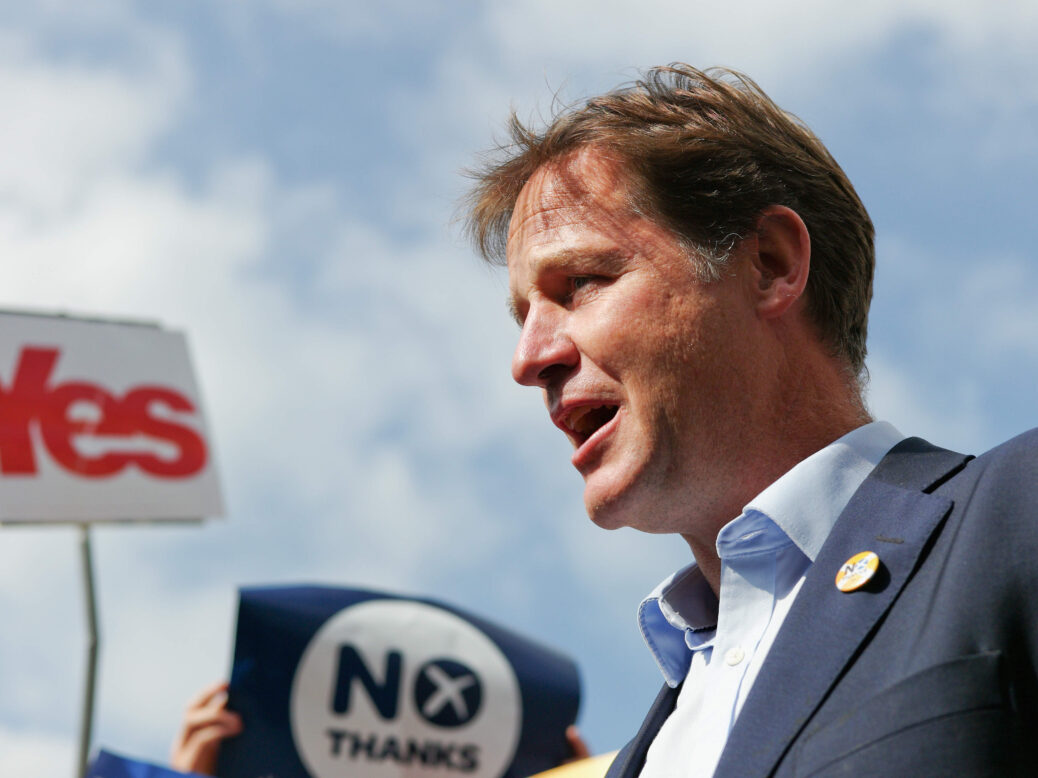
When David Cameron made his dramatic pledge this morning to end the right of non-English MPs to vote on English laws he made it clear that he hoped to act on a “cross-party basis” (as the parties have done on further Scottish devolution). But it’s already looking as if consensus will prove elusive.
Those I’ve spoken to in Labour suggest that the party will not agree to a reform that could leave it unable to pass major legislation, and even a Budget, in government (should it be dependent on Scottish and Welsh MPs for its majority). Although the West Lothian question is a genuine constitutional anomaly, most regard Cameron’s move as a nakedly political attempt to tie Labour’s hands.
Shadow Welsh secretary Owen Smith tweeted: “The last thing Scotland needs is a constitutional fix which reduces Scotland’s voice at Westminster & strengthens Tories’ grip on power.” He added: “Farage and Cameron united today in responding to yesterday’s decision by seeking to concentrate more power in their hands & at Westminster.”
Expect Ed Miliband to instead focus on the need for radical economic change and devolution to city regions to solve the problem of political alienation.
But it’s not just Labour that is distancing itself from Cameron’s proposals. Interviewed this morning in Edinburgh, Nick Clegg did not fall into line with the Tories’ plans. Rather than pure English votes for English laws, he suggested resurrecting the idea of an English grand committee to amend legislation, as proposed by the government’s McKay commission in March 2013. This would mean that UK MPs, including those from Wales and Scotland, would still have the final say.
Here’s the exchange:
Interviewer: “How’s this going to work, this English votes for the English? Does that mean on certain days some MPs from certain parts of the UK will have to step out of the Chamber? What’s it going to cover? Is it going to be tax, health? There seems to be – as this has raised a lot of issues, which people looking at the House of Commons think, ‘Well, how’s that going to work in practice?'”
Nick Clegg: “Well thankfully it’s already been looked at, so this government, the coalition government, we commissioned work for Lord McKay who looked at all of these issues and came up with some very sensible suggestions about how you could ensure that where – as powers are – significant powers on tax, welfare, borrowing – will devolve to Scotland, you could also adjust the procedures of the House of Commons such that decisions that only affect England have a new stage, if you like, in the decision-making process by which English MPs and English MPs only can make their views known.
“So thankfully a lot of the work has already been done. I think it’s right, as I’ve said before, as the Prime Minister’s said this morning, that we should try and bring these two things together at the same time; namely massive new devolution of powers to Scotland and adjusting the way in which votes are organised in Westminster.”
In addition, Danny Alexander echoed Labour by warning against creating “two different classes of MPs”, adding that: “There’s no party proposing to take away the voting rights of Scottish MPs – that is not part of the agenda. It’s not what’s going to happen.”
But the Tories have already signalled that if they fail to achieve cross-party support, they will make English votes for English laws a dividing line at the election. William Hague said this morning: “We have to discuss this with all the other parties. Of course if there is no consensus, well then it is something at the general election, the parties will have to stake out their positions.”
While the issue is not one that animates many voters, the Tories clearly see the potential to weaponise it and to frame themselves as the “English party” and Labour as the “anti-English party”.






